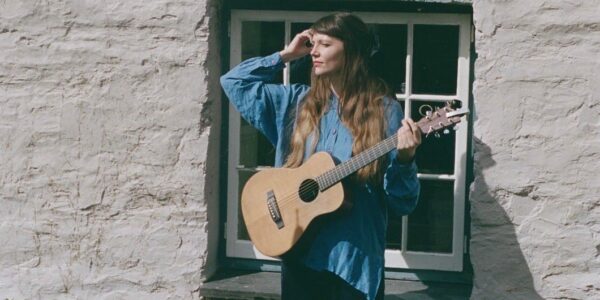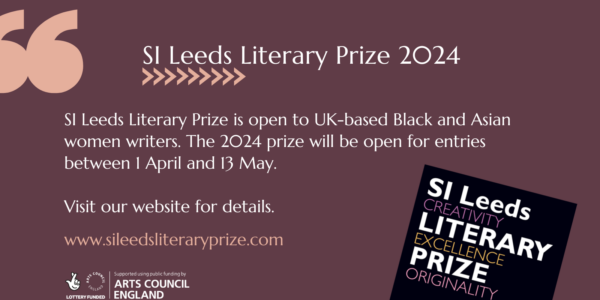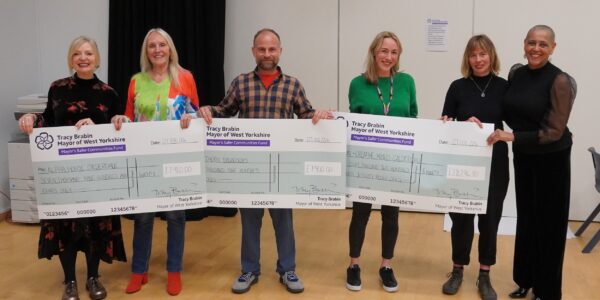Jerwood/Arvon Mentoring Programme – Two Poets’ Perspectives
25 Apr 2017 / My Arvon Journey
The Jerwood/Arvon Mentoring Programme, run in partnership with Jerwood Charitable Foundation, takes on twelve talented, emerging writers, who are mentored for one year by an established writer working in either Poetry, Fiction or Playwriting. In this piece, two of this year’s mentees share their experiences of the first residential week at Totleigh Barton.
This is An Oak Tree – Risk, Form and Genre – Seraphima Kennedy
Above everything else, I was curious to spend the week in the company of other mentees, to hear everyone’s drafts and to see each tutor’s approach. What would we write? How would learning about playwriting or fiction help me as a poet?
 We started with a playful, inventive session on playwriting with Tim Crouch. We were told to draw pictures of each other in 15 seconds, without looking at the paper. It was terrifying, not least because the person sitting opposite me was also my new mentor, poet Pascale Petit, who is an artist as well as a poet. She didn’t seem to mind the zany outline I scribbled down, and we laughed at each other’s attempts.
We started with a playful, inventive session on playwriting with Tim Crouch. We were told to draw pictures of each other in 15 seconds, without looking at the paper. It was terrifying, not least because the person sitting opposite me was also my new mentor, poet Pascale Petit, who is an artist as well as a poet. She didn’t seem to mind the zany outline I scribbled down, and we laughed at each other’s attempts.
The point of this exercise, Tim said, was to tune out the voice that says, no, that’s not right. To invent, he said, we needed to create an alternative reality. We talked about a work called ‘Oak Tree’ by YBA Michael Craig-Martin, in which the artist presented a glass of water on a shelf, along with a piece of text saying that he had changed the glass of water into an oak tree, that ‘the actual oak tree is physically present but in the form of the glass of water.’ This sounds nuts, obviously; but we were asked to consider Craig-Martin’s words, the ‘belief that is the confident faith of the artist in his capacity to speak and the willing faith of the viewer in accepting what he has to say.’
The confident faith of the artist. The willing faith of the viewer. The glass of water as an oak tree.
I’ve often thought that poems create their own little worlds, with their own boundaries and possibilities, their own rolling metaphors in the background. It reminded me of Adrienne Rich, the great American poet who speaks (in her collection of essays, Poetry & Commitment) of ‘the ‘possibilities in language for mere containment and the possibilities for expansion, for liberation.’ Whether we were writing poetry, plays or novels, we were being asked to remember that readers and audiences are capable of believing in transubstantiation in a piece of art – that playfulness, belief and faith were as important as content, and that anything can be anything.
That afternoon, we went off in new metaphorical directions in our poetry masterclass with our mentor Pascale Petit in the delightful, sunny, wood-clad poetry pod. Pascale gave each of us a sheaf of information about an animal and sent off to write a cento, a poetic form made entirely from lines ‘borrowed’ from other poems, so you can have a poem co-authored by several poets. I was given a snowy owl, and off I went to the cosy poetry library at the top of the big house, riffling my way through books by Ted Hughes, Amali Rodrigo, Jen Hadfield, Kate Miller and Karen McCarthy Woolf to write my snowy owl centos. We had an all-group poetry workshop the next day, too. We were asked to substitute definitions of objects to create abstract sentences, some of which had rare beauty and power. ‘A baby is a call to prayer,’ ‘A map is a voice that says, I’m home’ stood out as immediate favourites. We were given postcards of strange and powerful artworks to write from – mine was of a woman whose body was covered in pictures of owl faces. We looked at different open forms like flash poetry, the golden shovel, persona poems, we thought about the importance of the senses, and about looking beyond the frame of the poem.
Our final masterclass was with fiction writer Jacob Ross. As a poet, I’m often a little scared of fiction writers and their commitment to the less sexy elements of writing – the planning and plotting, the mapping out of stories. Jacob talked about the origins of stories in folk tales and religious texts. Human intelligence was tied to story construction, he said. What we are is constructed by narratives. I was familiar with this idea that we are made of stories, but by breaking down some of the tools and structures of fabular construction, Jacob made it clear that telling any story required a deep attention to human nature. In fiction, as in poetry, the reader is interested in heightened experience.
What stayed with me after the week was over was a sense of deep engagement with craft. Off we dutifully went between sessions, writing in the library, walking the grounds for inspiration. There weren’t any snowy owls, of course, but on one morning’s walk I flushed out a heron out from a clutch of trees by the river. He took up a new treetop position in the middle of the field, watching me from his eyrie while I walked the length of the river pacing out lines of poems in my head.
I learned so much by being in a space with other writers who were also taking risks in their work, looking for new ways to write about their preoccupations, and wanting to push the boundaries of the form they were working in. We learned, also, from the generosity of the three tutors, who worked and ate with us, and were always willing to talk about our ideas. Huge thanks to Pascale, Jacob and Tim, and to Eliza at the centre, and Joe for the care and support over every detail.
One evening stands out, for me, and that’s the night we had free. The playwrights disappeared to the playwriting library to run through their pieces and give each other feedback. There were people upstairs in the library working. The other poets and I sat at the long dinner table working on our centos and golden shovels. People would walk through, saying, ‘join us in the barn for a drink?’ And we would say, yes, we’ll come through in a bit. But we didn’t. We sat at the table, working on our poems. It was impossible to stop.
Hitting Water – Yvonne Reddick
When you arrive at Totleigh Barton, it feels like you’ve stepped into 1537. The thatched farmhouse is flanked by goose huts and piggeries. Stairs lead from the dining room to a bedroom with lancet windows and woodwormy beams. A sundial counts the hours by the bathroom window. There’s no such thing as wifi.
 At the bottom of the hill is the River Torridge, where Ted Hughes cast for salmon. This is the place where John Moat and John Fairfax founded the first Arvon Foundation centre, so it seems fitting that our journey as Jerwood/Arvon mentees started here.
At the bottom of the hill is the River Torridge, where Ted Hughes cast for salmon. This is the place where John Moat and John Fairfax founded the first Arvon Foundation centre, so it seems fitting that our journey as Jerwood/Arvon mentees started here.
We spent the first evening getting to know each other better over jokes, wine and apple juice from Totleigh’s trees. I was thrilled to hear that the poets were going to have their mentoring sessions in The Pod: a writer-sized nest box for hatching ideas.
While I was looking forward to the poetry sessions, the thought of writing a play made me want to hide under the table. However, the exercises during Tim’s playwriting workshop – drawing a portrait of a friend without looking at the paper, writing a dialogue that had two simultaneous meanings – were a super way to train us to think figuratively: a crucial skill for all writers.
Around the long dining-table, fiction mentor Jacob showed us how ‘escalation’ worked in short stories by famous authors. To think about characters’ motivation, we created a plotline about a cross-dressing nun! He spoke about the ‘blue light’ that haloed writers who had found their voice, and of writing as divining until you ‘hit water’: your inspiration, your theme. A skilled mentor can put the forked twig in your hands and guide you to where the springs are hiding.
For her workshop with the entire group, Pascale set us the task of writing poems in response to Surrealist art. She  handed me a postcard at random – Christian Schloe’s ‘The Wandering Forest’. The image shows a girl in white riding a roebuck; his antlers are a tangle of blossoms and fruit. In her hand, the girl cradles a bluebird. I couldn’t stop writing about it.
handed me a postcard at random – Christian Schloe’s ‘The Wandering Forest’. The image shows a girl in white riding a roebuck; his antlers are a tangle of blossoms and fruit. In her hand, the girl cradles a bluebird. I couldn’t stop writing about it.
We spent our time outside the workshops either scribbling furiously in the library, with books strewn all over the table, or heading off along the riverbank for adventures. The poets even managed to find our way to Sheepwash. We squeezed into a bookshop in a telephone box, and drank tea at the Half Moon Inn, where Ted Hughes and fellow eco-warriors schemed to save Devon’s polluted rivers.
Just before the mentees’ reading, Joe announced that Jacob had just won the inaugural Jhalak Prize for his novel The Bone Readers. The Barn exploded with whoops and cheers. Everyone read something they had written that week, sharing the moments when they had ‘hit water’.
It was wonderful to have dedicated time to write, but was even more wonderful to have the support of Joe, Tim, Pascale, Jacob, and our new friends on the programme. The Jerwood/Arvon programme can also help you to stand out in the literary world. A month after we got back from Totleigh, Poetry News published an article about the mentees. The article features a picture of the twelve of us, standing in the garden among the daffodils. We’re all in touch through email, Facebook and Twitter, and I feel that Seraphima, Roma and Alice have become my sisters in poetry. I can’t wait to see everyone again for the retreat in February.



